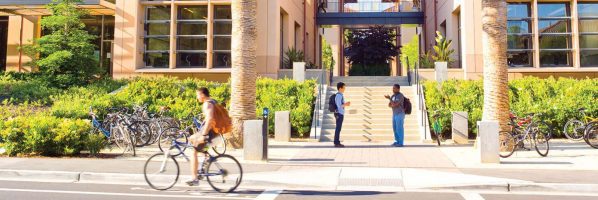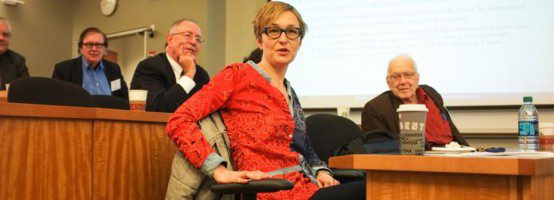Stanford Hosts Future of Work Symposium

The recent Stanford “Future of Work” symposium, co-presented by Stanford Career Education and OZY EDU, explored a number of topics related to a changing labor force in the face of automation, and what a more expansive definition of continuing education might entail.
Coursera CEO Jeff Maggioncalda SGSB ’96 and one of the panelists, believes that college degrees “will remain useful to build fundamental skills,” but that even college-educated members of the labor force “will be expected to continue their education throughout their careers” in order to stay competitive.
This is especially true for graduates with humanities and social science degrees, whose knowledge, according to Stanford’s Senior Vice Provost for Education Harry Elam, Jr. remain crucially important to helping industry “understand biases in data, facilitate collaboration, bring insight, provide historical perspective, and humanize technology in a data-driven world.”
GSV Asset Management co-founder Michael Moe believes that humanities and social science graduates can help us augment “the three R’s” with “the four C’s”: critical thinking, communication, creativity, and cultural fluency.
MindSumo co-founder and current Stanford GSB student Trent Hazy believes people with humanities and social science can “easily develop transferable skills that employers value. Humanities majors who also learn some quantitative skills by taking classes in statistics or logic will have an advantage over those who don’t.”
Coursera VP and Stanford GSB ’10 grad Julia Stiglitz believes startups like hers open up “educational opportunities … to anyone who has the will and desire and ability to go through it, and as a result I think we’re going to see all sorts of new people come into fields they otherwise wouldn’t have access to.”
When it comes to the projected 2030 obsolescence of half of today’s jobs by automation, all the speakers firmly believed that technology will create “new economic opportunity” in the long-term. Moe concludes: “While automation eats jobs, it doesn’t eat work.”
Booth Set to Launch New Poverty Lab

Marianne Bertrand, Chris P. Dialynas Distinguished Service Professor of Economics at Booth School of Business, will direct the new University of Chicago Poverty Lab. According to a press release on the The University of Chicago’s website, The Poverty Lab is one of three new urban labs the University of Chicago announced. This lab joins the Ecology and Wellness Labs as part of a University of Chicago network that builds on the success of the school’s Crime and Education Labs.
The Poverty Lab’s mission will be to seek ways to improve parenting skills and better prepare students for the job market. In each lab, staff members and students conduct research, formulate strategies for tackling problems, work with community groups to operate programs, then evaluate data to assess impact. By summer, the labs will be operating out of workspace in the Loop. Continue reading…
